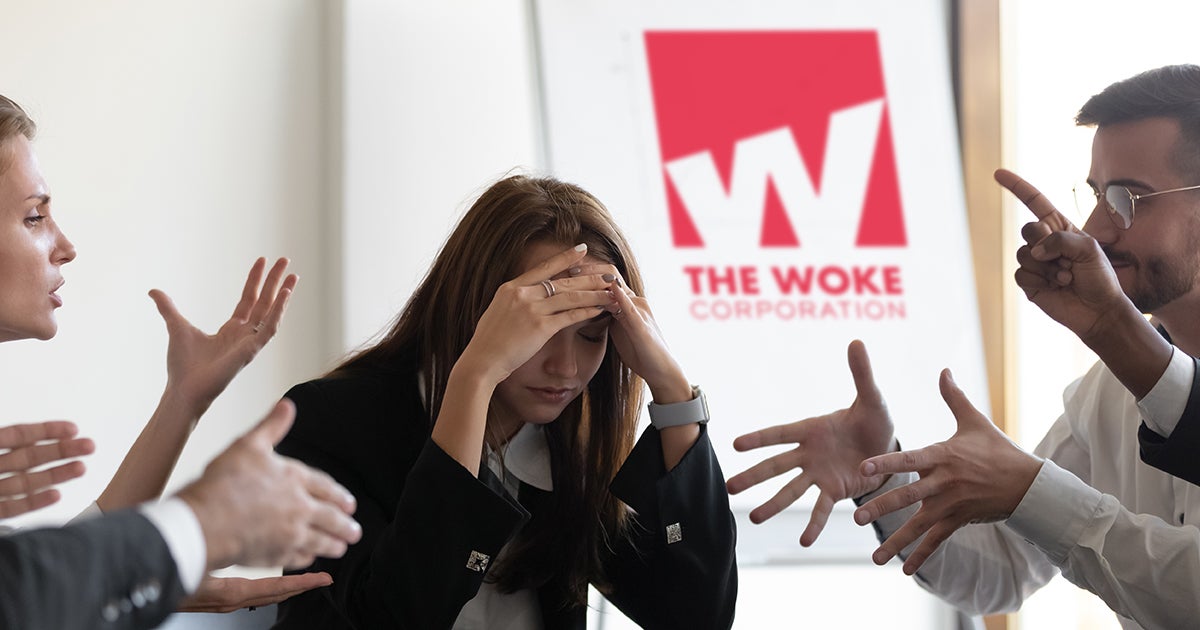
by Jorge Gomez • 4 minutes
New guidelines issued by the Equal Employment and Opportunity Commission (EEOC) could be beneficial for religious liberty—especially for employees of faith who experience discrimination under the guise of “Diversity, Equity and Inclusion.”
The administration recently published two guidance documents clarifying federal legal protections for Americans and what their options are if they encounter workplace discrimination related to DEI.
The guidance notes that DEI “is a broad term that is not defined in Title VII of the Civil Rights Act of 1964.” Title VII prohibits discrimination based on protected characteristics including religion, race, sex and national origin. The law mandates equal protection of all groups and individuals.
“Employers violate Title VII if they take an employment action motivated—in whole or in part—by race, sex, or another protected characteristic,” the document continues. “Title VII does not provide any ‘diversity interest’ exception to these rules.”
“For religious Americans, this guidance signals a new receptivity within the Equal Employment Opportunity Commission to legitimate claims of religious discrimination,” explains First Liberty Senior Counsel Stephanie Taub in an op-ed for The Hill.
The DEI agenda has swept through corporations, universities and many institutions across America. Contrary to what its name implies, DEI is anything but equitable or inclusive. These policies are designed to favor some groups in employment practices, decisions, and above others—which is a harmful practice that actually encourages discrimination.
Our attorneys have explained that same agenda that promises to increase diversity, equity and inclusion has led to the exclusion, alienation and even the canceling of people of faith. These policies advance an agenda to punish religious Americans if they do not openly affirm radical ideology or viewpoints that violate their sincerely held beliefs.
Religious discrimination in the workplace is a serious problem. Since 2020, EEOC reports show a marked increase in the number of religious discrimination charges filed by employees.
Right now, First Liberty is fighting a major case in federal appeals court on behalf of Lacey Smith and Marli Brown, two former Alaska Airlines flight attendants who were fired for posting concerns on an internal company website about the “Equality Act” and its impact on women and people of faith.
“Alaska Airlines’ obsessive focus on DEI created a hostile work environment for employees of faith like Marli and Lacey,” Taub said. “The company’s decision to fire our clients is a blatant violation of state and federal civil rights laws, which prohibit discrimination in the workplace based on religious beliefs and expression.”
“Thanks to the new guidance, workers across the country who find themselves in a similar situation as Brown and Smith—disadvantaged for their religious beliefs under their workplace’s DEI infrastructure—now have a green light to seek justice at the EEOC,” Taub added.
Additional Guidance: Opting Out of Mandatory DEI Trainings?
The EEOC’s religious discrimination website offers additional information and clarity. Atop the page, the EEOC cites First Liberty’s landmark Supreme Court victory in our Faithful Carrier case, Groff v. DeJoy, which set a major precedent strengthening protections for religious Americans at work.
In Groff, the Court unanimously strengthened employee’s rights to receive a religious accommodation. The bar is now much higher for employers to deny a religious accommodation. They will have to prove that accommodating their employees would “result in substantial increased costs.” This is a massive shift in the law that favors religious working Americans.
First Liberty Senior Counsel Jeremy Dys points out that after Groff, religious employees are in a position to raise religious freedom complaints against mandated DEI trainings if those trainings force employees to agree with an ideology or make them less able to live out their faith.
“Now you can talk to your employer about, ‘Hey, look, can we talk about a different level of diversity or an inclusive program that talks about my faith as well?’” Dys told The Daily Signal. “For the first time in 46 years, we have the right now to seek that accommodation, and the employer has to actually meaningfully engage with you in those conversations.”
“No longer is it like, ‘Well, look, the job is more important than your religious beliefs. Do the job or get out,’” Dys added. “Now it is, ‘We recognize that your religious beliefs are at least as important as your job; I think, actually, more important. Let’s sit down to figure out how we can accommodate your religious beliefs so that you’re a good employee here, as well.’”
First Liberty will continue defending religious Americans at work. Forcing them to choose between their job and their sincere religious beliefs makes a mockery of our laws that protect against religious discrimination at work. It’s wrong and illegal. People of faith have a right to live, work and do business in a manner that’s consistent with their convictions.
Defending religious liberty in the marketplace is critical, especially as corporate America appears to become more hostile toward religious practices. But fighting these cases requires tremendous human and financial resources. Major corporations have millions of dollars at their disposal—and we need your ongoing support to successfully fight them in court.
Please give now and join First Liberty in this fight.
Read More:
First Liberty Attorney: DEI Is No Excuse to Openly Discriminate Against Religious Employees
Can Religious Employees Challenge Mandated DEI Trainings?
Is DEI Helping or Harming Religious Freedom in the Workplace?
EEOC Report: Religious Discrimination in the Workplace Reaches All-Time High
Woke Corporate Culture: One of the Biggest Threats to Religious Freedom